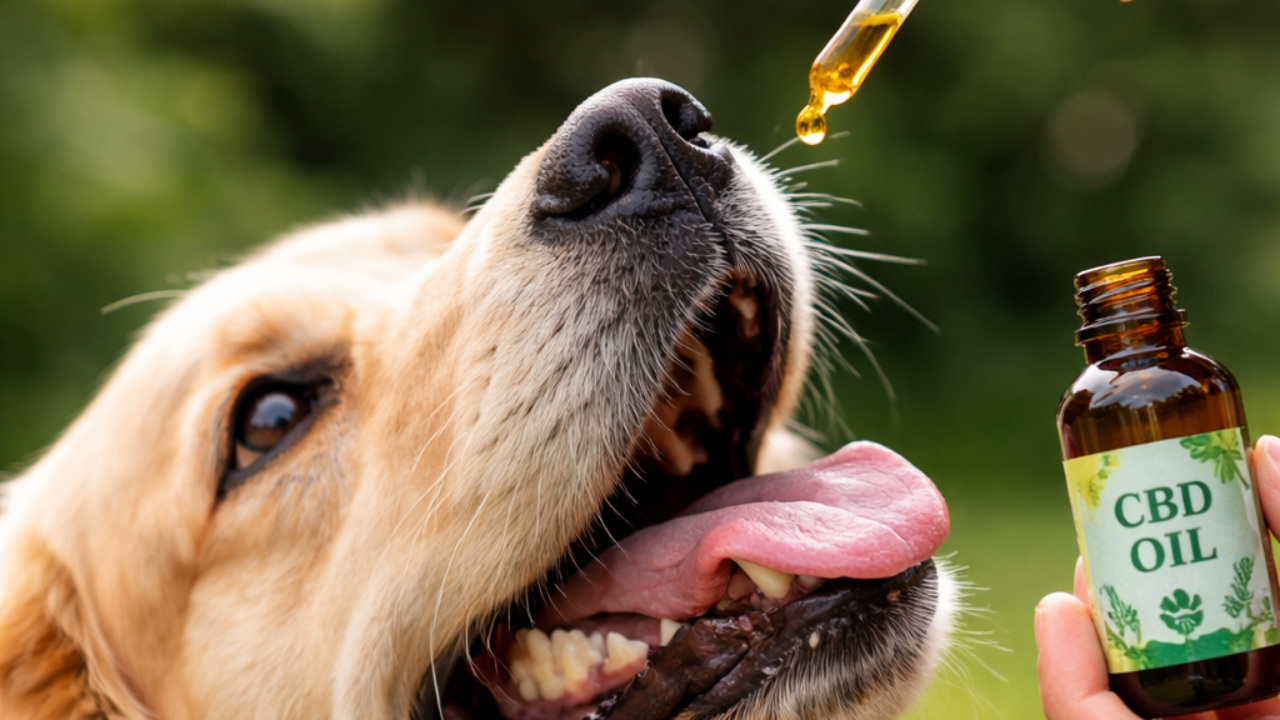How to Treat Breast Cancer with Hyperthermia in Dogs
Nov 14, 2024
Breast cancer in dogs, much like in humans, can be a daunting diagnosis. Fortunately, advancements in veterinary medicine have opened up new avenues of treatment, including the use of hyperthermia.
This innovative approach offers hope and potential relief for our furry friends battling this disease. In this article, we will look at hyperthermia treatment. We will explain how it works and its benefits for treating breast cancer in dogs.
Can Dogs Have Breast Cancer... Actually?
Breast cancer, also known as mammary gland tumors, is a common cancer in female dogs. This is especially true for dogs that aren't spayed or spayed later in life.
These tumors can be benign or malignant, with malignant tumors posing a significant health risk. Early detection and treatment are crucial for improving a dog's prognosis.
What is Hyperthermia Treatment?
Hyperthermia treatment involves raising the temperature of tumor tissues to enhance the effectiveness of cancer therapies. It works on the principle that cancer cells are more sensitive to heat than normal cells.
Hyperthermia uses controlled heat on malignant cancers. This can damage and kill cancer cells. It also makes cells more sensitive to other treatment options, like radiation or chemo.

How Does Hyperthermia Work?
Before we proceed, it's important to note that hyperthermia is a complicated process that may result in dogs developing significant side effects.
Before starting this therapy, it is important to talk to your vet and oncologist. Discuss your dog's malignant mammary tumors with them. This will help reduce the risk of side effects and damage to the mammary tissue.
Now that we've had that discussion, here's the process:
- Localized heating: Hyperthermia targets the tumor site, heating it to temperatures between 40°C and 45°C (104°F to 113°F). This localized heating can disrupt the cancer cells' structure and function.
- Enhancing other treatments: By weakening cancer cells, hyperthermia can increase the efficacy of radiation therapy and chemo. It can help drugs penetrate the tumor more effectively, leading to better outcomes and reducing the risk of metastases spreading.
- Immune system activation: Heat can stimulate the immune system, prompting it to attack cancer cells more aggressively. This dual approach of direct and immune-mediated action can be particularly beneficial and improve survival times.
Benefits of Hyperthermia in Canine Breast Cancer Treatment
The benefits of hyperthermia in canine breast cancer treatment include:
- Minimally invasive: Unlike surgery, hyperthermia is a non-invasive procedure, reducing recovery time and stress for the dog.
- Reduced side effects: Hyperthermia can reduce the side effects of other treatments. It does this by allowing lower doses of chemo or radiation.
- Improved quality of life: By targeting cancer cells more precisely, hyperthermia can improve the overall quality of life, reducing pain and discomfort associated with cancer.
The Procedure: What to Expect
- Initial assessment: A veterinary oncologist will assess the dog's overall health, cancer stage, and suitability for hyperthermia.
- Treatment planning: A customized treatment plan is developed, often in conjunction with other therapies.
- Application of heat: Using specialized equipment, heat is applied to the tumor site. The procedure is typically painless and may require sedation to keep the dog calm.
- Monitoring and follow-up: Regular monitoring is essential to assess the treatment's effectiveness and make adjustments as needed.
Potential Challenges and Considerations
Hyperthermia is usually part of a comprehensive treatment plan and may not be suitable for all cases.
- Access to treatment: Availability of hyperthermia treatment can vary, and it may not be offered at all veterinary clinics.
- Cost: As with many advanced treatments, cost can be a consideration, though many pet owners find the benefits outweigh the expenses.
The Role of Abdominal Ultrasounds in Hyperthermia Treatment
When treating breast cancer in dogs with hyperthermia, abdominal ultrasounds play a crucial role in the diagnostic and treatment process. These imaging tests provide vital information that can influence treatment decisions and outcomes.
Why Are Abdominal Ultrasounds Necessary?
Before initiating hyperthermia treatment, it's essential to understand the extent of the cancer. Abdominal ultrasounds allow veterinarians to assess the presence of metastasis (spread of cancer) to abdominal organs such as the liver, spleen, and lymph nodes.
This comprehensive assessment helps in staging the cancer accurately.
Treatment Planning
Knowing whether the cancer has spread beyond the mammary glands can significantly influence the treatment plan. If metastasis is detected, the treatment approach may need to be adjusted, possibly incorporating additional therapies alongside hyperthermia.
Monitoring Progress
Throughout the treatment process, regular abdominal ultrasounds can help monitor the effectiveness of hyperthermia and other therapies. By observing changes in tumor size or spread, veterinarians can make informed decisions about continuing, adjusting, or halting certain treatments.
Detecting Complications
Ultrasounds can also identify any complications or side effects that may arise during treatment. Early detection of issues allows for prompt intervention, ensuring the dog's safety and comfort.
Baseline Comparison
Establishing a baseline with an initial ultrasound provides a point of comparison for future scans. This helps in tracking the disease's progression or regression over time, offering valuable insights into the treatment's success.
The Ultrasound Procedure
- Preparation: The dog may need to fast for several hours before the procedure to ensure clear images. Sedation is typically not required unless the dog is particularly anxious or uncooperative.
- Conducting the scan: The veterinarian will use a handheld probe to send sound waves into the dog's abdomen, creating images of the internal organs. This process is non-invasive and generally well-tolerated by dogs.
- Interpreting results: A veterinary radiologist or oncologist will interpret the ultrasound images, providing a detailed report on the findings. This information is crucial for tailoring the most effective treatment strategy.

Considering Hyperthermia for Affected Mammary Glands
While hyperthermia is not a magic bullet, it represents a significant advancement in the treatment of canine breast cancer. By integrating this therapy into a comprehensive treatment plan, veterinarians can offer hope and improved outcomes for dogs facing this challenging diagnosis.
As always, it's crucial for pet owners to discuss all available options with their veterinary team to determine the best course of action for their beloved pets.
For further reading, check out our sources here:
Hall EJ, Carter AJ, Bradbury J, Beard S, Gilbert S, Barfield D, O'Neill DG. Cooling Methods Used to Manage Heat-Related Illness in Dogs Presented to Primary Care Veterinary Practices during 2016-2018 in the UK. Vet Sci. 2023 Jul 15;10(7):465. doi: 10.3390/vetsci10070465. PMID: 37505869; PMCID: PMC10385239.
Nytko, K. J., Weyland, M. S., Dressel-Böhm, S., Scheidegger, S., Salvermoser, L., Werner, C., Stangl, S., Carpinteiro, A. C., Alkotub, B., Multhoff, G., Bodis, S., & Rohrer Bley, C. (2023). Extracellular heat shock protein 70 levels in tumour-bearing dogs and cats treated with radiation therapy and hyperthermia. Veterinary and comparative oncology, 21(4), 605–615. https://doi.org/10.1111/vco.12923
Schuh, E. M., Portela, R., Gardner, H. L., Schoen, C., & London, C. A. (2017). Safety and efficacy of targeted hyperthermia treatment utilizing gold nanorod therapy in spontaneous canine neoplasia. BMC veterinary research, 13(1), 294. https://doi.org/10.1186/s12917-017-1209-y
Takagi H, Azuma K, Osaki T, Itoh N, Nakazumi S, Taura Y, Okamoto Y. High temperature hyperthermia treatment for canines exhibiting superficial tumors: A report of three cases. Oncol Lett. 2014 Nov;8(5):2055-2058. doi: 10.3892/ol.2014.2496. Epub 2014 Sep 3. PMID: 25295089; PMCID: PMC4186591.
Become a Dog Cancer Coach.
Transform your passion for dogs into a meaningful, heart-led career with our Holistic Dog Cancer Coach Certification—an in-depth, flexible online program designed for compassionate caregivers ready to make a difference.
Stay connected with news and updates!
Join our mailing list to receive the latest news and updates from our team.
Don't worry, your information will not be shared.
We hate SPAM. We will never sell your information, for any reason.





